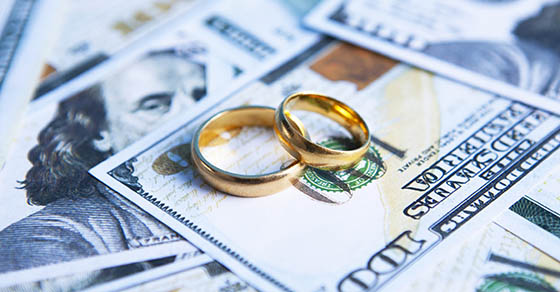Valuing goodwill in divorce: Recent cases provide insight
 Goodwill is one of the most confusing aspects of valuing a business interest for divorce cases. In many states, goodwill needs to be valued and then divided into two pieces: business and personal goodwill. Unfortunately, significant differences in methods and theories exist on this complex issue, as recent case law demonstrates.
Goodwill is one of the most confusing aspects of valuing a business interest for divorce cases. In many states, goodwill needs to be valued and then divided into two pieces: business and personal goodwill. Unfortunately, significant differences in methods and theories exist on this complex issue, as recent case law demonstrates.
Key definitions
According to the International Valuation Glossary — Business Valuation, “Goodwill can arise as a result of name, reputation, customer loyalty, location, products, and similar factors not separately identified.” A business interest may possess two types of goodwill:
- Business (or entity) goodwill. This belongs strictly to the entity itself. Business goodwill may arise from many sources, including the company’s name, phone number, location and special attributes, such as special menu items or recipes at a restaurant.
- Personal (or professional) goodwill. This type of goodwill is directly attributable to an individual’s characteristics or attributes. It includes not only the owner’s skills, knowledge and reputation, but also his or her contacts and relationships.
More than half the states specifically exclude personal goodwill from the marital estate (but still include business goodwill) if the business owner’s earnings are used to determine maintenance payments.
Professional practices
Personal goodwill is often associated with professional practices, such as law, accounting, medical and architectural. The success (or failure) of these ventures generally depends on the skills and reputation of the individual practitioners. However, as demonstrated by a recent divorce case — Cela v. Cela (No. 019-01861-COA-R3-C, Tenn. App. 2021) — a professional practice may also possess some business goodwill that may be included in the marital estate.
In Cela, the subject company (the wife’s speech therapy practice) had an established business model and operated uninterrupted while the wife took two extended leaves of absence. Based on the facts of the case, the Tennessee Court of Appeals determined that the practice was a successful enterprise, not reliant on any single therapist. Therefore, it found that the practice possessed significant business goodwill, affirming a discount of only 14.3% to account for the wife’s personal goodwill.
Other business entities
Other types of businesses — such as retailers and manufacturers — may also possess elements of personal goodwill. For example, the Court of Appeals of Kentucky in Maginnis v. Maginnis (No. 2019-CA-1090-MR, Ky. App. 2021) remanded the determination of the value of the couple’s chimney sweeping business to the family court. The family court had, among other missteps, failed to address the apportionment of goodwill between personal and enterprise goodwill pursuant to state law and legal precedent. The lower court was ordered either:
- To accept the wife’s expert’s conclusions, which allocated 70% of the company’s value to the husband’s personal goodwill (a nonmarital asset in Kentucky), or
- To reject this analysis and explain the reason for doing so.
The appellate court rejected the assertion that only professional practices possess personal goodwill. This decision was based on a landmark case from Indiana (Yoon v. Yoon, 711 N.E.2d 1265, Ind. 1999), which specifically refers to valuing “a business or practice.”
No universal solution
As these cases show, goodwill can be a complicated issue and the proper treatment varies depending on the jurisdiction and case facts. In some instances, a court may even consider case law from other states, especially when there’s limited legal precedent in its jurisdiction. A trained valuation professional can provide a well-supported and logical analysis of the facts at hand. Contact us to determine what’s appropriate for your situation.
© 2022



